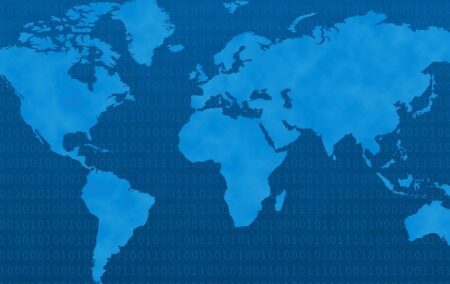South Africa continues to slide down rankings of economic freedom, with the country’s overall score now at a record low.
According to the latest Index of Economic Freedom from The Heritage Foundation, a Washington-based think tank, South Africa’s economy is the 112th freest out of 177 nations, with a score of 56.2 out of a possible 100.
Its overall score has decreased by 3.5 points from the previous year and is the lowest score South Africa has recorded yet. Its previous lowest score was 58.3, in 2019.
This means that South Africa’s economy is now considered mostly unfree, a classification it has held for the fourth year in a row, after having been classified as a moderately free economy for nearly 25 years.
Of the 47 countries ranked in sub-Saharan Africa, Mauritius, Cape Verde, and Botswana emerged as the three freest economies. South Africa ranked 17th in the region.
Several indicators are considered in calculating the economic freedom index, including the rule of law, regulatory efficiency, and market openness. If South Africa is to improve its ranking, then it must improve in these areas.
Rule of law
Strong property rights and freedom from corruption are important components in the rule of law and are also key in measuring economic freedom.
The higher the level of legal protection of private property, the higher a country’s score; similarly, the higher the chances of government expropriating private property, the lower the score. South Africa’s property rights score is 43.2 out of a possible 100, lower than it was half a decade ago when it was 67.6. There is no doubt that the government’s attempts to expropriate private property without compensation account for the low score.
Insecurity and uncertainty in economic relations are brought about by corruption, which undermines economic freedom. Anticorruption laws are strong in South Africa, although enforcement is lacking, and many corrupt officials go unpunished.
The findings of a survey by Afrobarometer between May and June 2021 indicate that almost two-thirds (64%) of South Africans believed corruption had increased in the previous year, with half (49%) believing it had “increased a lot”. South Africa’s ranking suffers due to the lack of adequate action against corruption.
Regulatory efficiency
Regulatory efficiency encompasses both business and labour freedom. In terms of business freedom, South Africa must make it easier for investors to start, operate, and even close their businesses without being burdened by too many regulations. Currently South Africa’s business freedom ranking is 65.7 out of a possible 100 – higher than the previous year when it was at 61.5
In terms of labour freedom, South Africa will probably surprise some. The country scored 71.1 out of a possible 100, a significant leap from its score of 59.4 in 2021.The improvement is probably due to a rise in the labour market participation rate from 47.3% in 2020 to 57.5% in 2021.
Labour market participation refers to the percentage of the working-age population (15 to 64 years of age) that is economically active (employed or unemployed), and a higher rate reflects greater ease in hiring new employees, or firing redundant staff.
Among the 177 countries surveyed, South Africa ranked in the top ten in terms of labour freedom, while Micronesia, Austria, and Singapore topped the list in that category.
This measure is likely skewed by the distortions created in the South African labour market by the Covid-19 pandemic and the resultant lockdown. The labour freedom measure will thus be more likely to accurately reflect labour conditions in future indexes, meaning South Africa will be likely to slide even further down the economic freedom rankings.
Other aspects of the legal and regulatory framework of a country’s labour market include regulations on a minimum wage and measurable regulatory restraints on hours worked.
Openness of markets
An important contributing factor to the openness of markets is investment freedom, which can be promoted by allowing individuals and businesses to move their resources into and out of specific activities, both internally and across the country’s borders, without restriction. Currently South Africa’s investment freedom score remains unchanged for a fourth consecutive year at 45 out of a possible 100.
Most successful economies have a higher degree of economic freedom because they have greater opportunity to grow. For instance, Singapore’s economic freedom score is 84.4, making it the world’s freest economy in the 2022 Index. Singapore is one of the world’s most prosperous nations, with strong international trading relationships. Its port is one of the world’s busiest. The country’s GDP per capita is above that of the leading nations of Western Europe.
Switzerland, Ireland, New Zealand and Luxembourg are also among the top five freest economies and are experiencing continual economic growth and development.
Clearly societies thrive when governments step aside and allow people to make decisions that are best for them, their families, and their businesses. Those are the building blocks of a prosperous nation.
[Image: https://pixabay.com/illustrations/africa-america-asia-atlantic-15428/]
If you like what you have just read, support the Daily Friend
Click here for a free 30-day trial with the CRA

